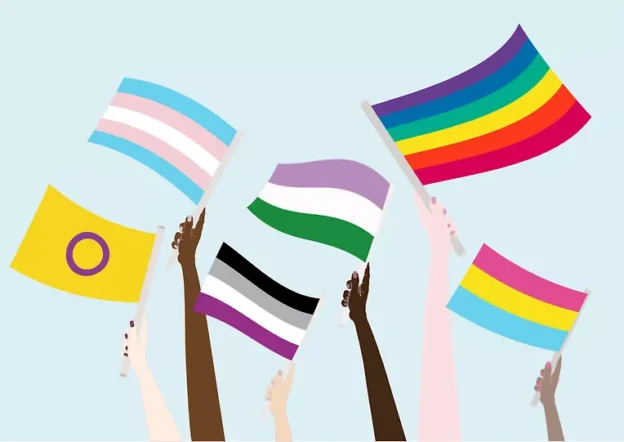Pride Month: LGBTQ+ Community and Addiction
In recent years, our society has made significant progress in recognizing and supporting the LGBTQ+ community. June is recognized as Pride Month for the LGBTQ+ community and allows people to celebrate equal opportunities for all. However, it is essential to acknowledge that members of this community still face unique challenges and struggles that can contribute to higher rates of addiction. Centered Recovery Programs in Roswell recognizes the challenges that the LGBTQ+ community faces regarding addiction and we are here to help everyone reach sobriety. Understanding the link between the LGBTQ+ community and addiction requires exploring the complex factors involved, such as societal pressures, discrimination, and internalized stigma. Let’s dive in!
Societal Pressures and Discrimination
LGBTQ+ individuals often encounter societal pressures and discrimination, which can profoundly impact their mental health and well-being. Facing rejection from family, friends, or society, many individuals in the LGBTQ+ community experience feelings of isolation, low self-esteem, and internalized shame. These negative experiences can lead to increased stress, anxiety, and depression, making individuals more susceptible to turning to substances to cope with emotional pain.
Internalized Stigma
Internalized stigma refers to the negative beliefs and attitudes that LGBTQ+ individuals may internalize due to societal prejudices against their sexual orientation or gender identity. This self-directed stigma can lead to feelings of shame, guilt, and self-hatred, which can contribute to the development of addiction. To escape these negative emotions, some individuals may turn to substance abuse as a form of self-medication or to numb their pain.
Barriers to Healthcare and Support
Accessing appropriate healthcare and support services can be challenging for LGBTQ+ individuals. Many face barriers such as discrimination, lack of cultural competency among healthcare providers, and limited availability of LGBTQ+-friendly resources. These obstacles can discourage individuals from seeking help for addiction or mental health issues, further exacerbating the problem. It is crucial for healthcare providers and support networks to create safe and inclusive environments that address the specific needs of the LGBTQ+ community.
Trauma and Co-occurring Disorders
Members of the LGBTQ+ community are disproportionately affected by traumatic experiences, including physical and sexual violence, bullying, and hate crimes. These traumatic events can lead to the development of post-traumatic stress disorder (PTSD) and other co-occurring mental health disorders. Individuals who experience trauma and mental health challenges are at a higher risk of substance abuse. Usually, this is as a means of self-soothing or numbing the pain associated with their past experiences.
Social Support and Resilience
Despite the challenges faced by LGBTQ+ individuals, research has shown that social support and resilience can be protective factors against addiction. Building strong support networks, both within the LGBTQ+ community and among allies, can help individuals feel accepted, understood, and validated. Creating safe spaces, such as LGBTQ+ community centers or support groups, gives individuals a sense of belonging. Hopefully, this will reduce the likelihood of turning to substances for solace!
Promoting Inclusivity and Education
To address the link between LGBTQ+ individuals and addiction, it is crucial to promote inclusivity. Also, we need to educate society about the unique challenges faced by this community. Schools, healthcare systems, and organizations should implement comprehensive special policies and training programs. These policies can foster understanding, respect, and empathy toward LGBTQ+ individuals. By increasing awareness and reducing discrimination, we can help create an environment that supports LGBTQ+ individuals in their journey toward recovery and overall well-being.
Love Makes the World Go ‘Round
Pride Month highlights the link between the LGBTQ+ community and addiction as complex issues. Some of these issues show in societal pressures, discrimination, and internalized stigma. To address this problem, we must strive for inclusivity, understanding, and support for LGBTQ+ individuals. By creating safe spaces and promoting resilience, we can help break the cycle of addiction. Therefore, we provide a pathway to recovery and a healthier future for everyone, regardless of their sexual orientation or gender identity. Together, let us build a more compassionate and accepting world. Call us at Centered Recovery Programs in Roswell today to learn more about our mindfulness-based non-12-step program at 800.556.2966! Happy Pride Month!
Written by Jennifer Lopes, BS Psy






